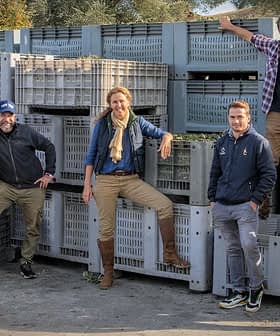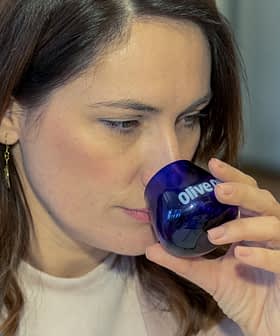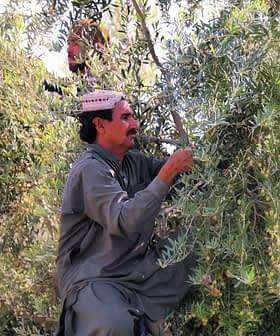Pompeian VP Says Baltimore Bridge Disaster Cost Company Millions
While the company was able to receive its most recent shipment of European olive oil through the port, the measures taken after the disaster were unsustainable in the long run.
 (Photo: Associated Press)
(Photo: Associated Press) The collapse of Baltimore’s Francis Scott Key Bridge on March 26th had a significant financial impact on Pompeian, the largest olive oil bottler in the U.S., with millions of dollars lost in rerouting a shipment of nearly 5.3 million liters of olive oil. Despite successfully managing the situation, Pompeian’s reliance on the port of Baltimore was financially unsustainable over the long term, according to the company’s executive vice president and chief operating officer.
The collapse of Baltimore’s Francis Scott Key Bridge on the morning of March 26th has had an estimated financial impact of millions of dollars on bottler and distributor Pompeian, according to the company’s vice president of operations.
Salim Benjelloun told WJZ News, a CBS affiliate, that a shipment of nearly 5.3 million liters of olive oil, scheduled to arrive on March 27th, had to be rerouted.
“We needed 300,000 gallons (1.13 million liters) to be discharged sooner rather than later so that the quality of our product would not be impacted, our employees would be protected and operations would not be interrupted,” Benjelloun said.
See Also:US Surpasses Spain as Second-Largest Olive Oil ConsumerWhile some of the olive oil was offloaded at a section of the port that was not impacted by the bridge collapse, the rest had to be rerouted to the port of New York and brought down to the Baltimore facility in trucks, a 310-kilometer journey that takes more than three hours and added considerable expense.
“We’re talking millions of dollars; we’re not talking hundreds of thousands in terms of financial impacts,” Benjelloun said.
Pompeian, based in Baltimore for over 100 years, is the largest olive oil bottler in the United States. The company imports olive oil from nine countries and produces olive oil from 425 hectares of groves in California. However, the lion’s share comes from the Mediterranean.
“We are the number one brand of olive oil with over 21 percent market share in the United States,” Mouna Aissaoui, Pompeian’s executive vice president and chief operating officer, told WYPR.
“We have always considered the port of Baltimore an extension of our operations and a strong asset for us,” she added. “We bring olive oil from around the world through the port of Baltimore in shipping containers… Then we bring the oil to our factory, where it is filtered, blended and bottled to be distributed throughout the United States.”
Before the collapse, caused by a cargo ship colliding with the bridge, the port of Baltimore was one of the top 20 ports in the U.S. In 2023, an estimated $73 million of oilseeds, including olive oil, passed through the port.
According to data from the U.S. Department of Agriculture, the country imported 360,700 tons of olive oil worth $2.2 billion in 2023.
Some portions of the main port have reopened to larger ships, and Pompeian successfully imported a shipment from the most recent harvest in Europe. The port will not return to full capacity until mid-June.
“We fully and heavily rely on the port of Baltimore. We’re in Baltimore because of the port,” Benjelloun said. “With everything that happened in the port of Baltimore, we’re not backing away from that. If anything, we’ve seen that in a worst-case scenario, we were still able to manage.”
However, Aissaoui confirmed that the company’s strategy, while effective, was financially unsustainable over the long term.
“The amount of money we were investing [in the solutions that we put in place] was not something we could do for a continuous amount of time,” she said.
Share this article









